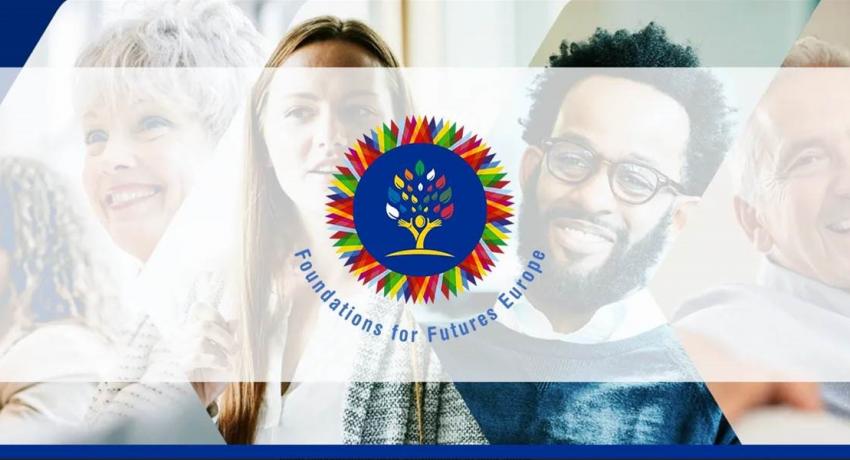The programme Foundations for Futures Europe has come to an end.
Here is a wrap up of the Hellenic Antipoverty Network's contribution.
In the framework of the project Foundations for Futures Europe, the Hellenic Antipoverty Network organised a seminar on Participatory Democracy: Designing the Social Europe of the Future from 15 January 2022 until 19 March 2022 involving 75 participants, which took place online because of COVID-19 restrictions at the time.
During the seminar we dealt with three (3) key issues: Which EU I dreamed of, Which EU I came to, Which EU I want to live in in four three-hour sessions.
The seminar was intended for and brought together a diverse group comprised of people with a refugee background, people who work or volunteer in civil society organisations and initiatives that address or want to address issues of social inclusion, activists, journalists, content creators, formal and non-formal education trainers working with refugees, representatives of governmental or local authorities and people working for them, as well as students and young researchers in the social and political sciences.
The workshops were interactive and based on the experiences of the participants who contributed extensively to the development of the discourse and how it resonated with their lives and mentality with the facilitation of a professional trainer who drew on the group’s own knowledge and used a diversity of participative tools in order to encourage both the exchange of experiences and generate recommendations for the future of Europe. The course consisted of synchronous and asynchronous learning sessions.
During the last session the group along with four guest speakers from the academia and the Ukrainian community worked on the issue of the future of the EU taking into account the recent developments. It was open to the public, for the benefit of the participants, who had taken part in the previous online meetings. It offered an open meeting point where more people could join into a debate on the future of Europe, by raising the issues and aspirations emerging today, in a particularly unstable moment and by attempting a comparison of the vision towards European integration, unifications and a better society that it claims to be building, with the current needs of its inhabitants and current developments.
As a catch up and conclusions let us note that the war in Ukraine that started while we were already implementing the project had for sure affected the progress, the process and the content of the seminar. Participants were more empathetic and emotionally affected by the war and they were eager to discuss more about the current situations and how they/we could react in a more direct and sufficient way since what we are already discussing is happening "right now" in our front door. At the same time the current situation made the participation for some of the participants more difficult since they have been asked in some situations to work on the spot to support refugees coming to Greece or/and the work overload was not letting them be fully involved.
Additionally, the participants have stated that it was of high value to them that they shared impressions and input on comprehending the EU at a much deeper level; interacted with civil society, academia, colleagues and beneficiaries in the civil society and enriched their skillset and knowledge; as well as, learning of ways in which they too can benefit and empower target groups of their own in raising their voice, formulating recommendations and supporting positions when it comes to their own needs and welfare.
The results of the above process are depicted concisely and coherently in a toolkit we produced to be used in order to facilitate vulnerable groups with an emphasis on refugees and asylum seekers to participate in public debate processes to develop social action, cultivate democratisation, interculturalism and promote European values while countering Euroscepticism. These results were integrated in a toolkit and were promptly promoted. This toolkit serves as the basis for similar activities and aims to trigger the interest of various communities of vulnerable people as well as professionals with its simplicity and adaptability.
Please find the list of events here: ![]() List-of-Events-For-Upload-FFE.pdf
List-of-Events-For-Upload-FFE.pdf

